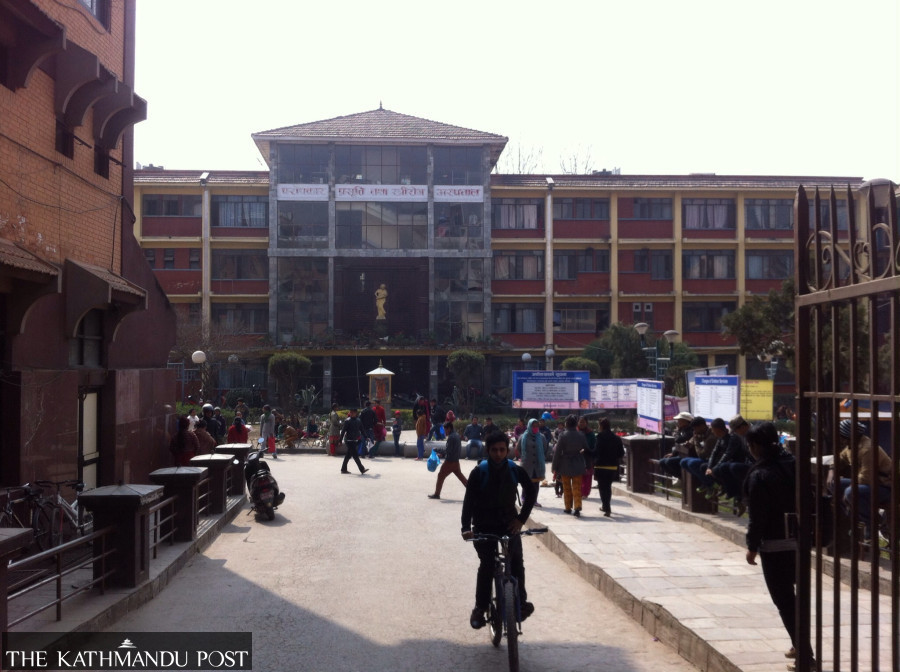National
Maternity Hospital pushes for mental health screening training for all healthcare workers
It is estimated that around 20 percent of women suffer from mental health problems during pregnancy.
Post Report
The Paropakar Maternity and Women’s Hospital has demanded mental health screening training for all of its health workers, stressing that addressing mental health issues among pregnant women requires broader involvement.
Officials at the hospital say that imparting training only to doctors will not be sufficient for reducing maternal deaths attributed to mental health during pregnancy.
“We have demanded extensive mental health screening training for all our nurses, paramedics and doctors,” said Dr Shree Prasad Adhikari, director at the hospital. “Providing orientation only to doctors and nurses is not sufficient for diagnosing these problems.”
The Family Welfare Division under the Department of Health Services held an orientation on mental health problems in the hospital a few days ago.
The division estimated that 20 percent of women suffer from some kind of mental health problems during their pregnancy. Of late mental health problems have been emerging as a leading cause of maternal deaths.
A report on maternal mortality unveiled last year by the National Statistics Office showed that six percent of maternal deaths were due to self-harm (suicide), with the majority occurring during pregnancy.
The report shows that in every 100,000 live births, 151 women died from maternity-related complications.
Every year, hundreds of women in the country succumb to preventable deaths from excessive bleeding after childbirth, also known as postpartum haemorrhage, and pre-eclampsia (pregnancy-related high blood pressure disorders), which have been identified as chief causes of maternal deaths in Nepal.
However, the 2021 study also shows that a significant number of maternal deaths are also caused by non-obstetric complications such as intentional self-harm.
“We have told officials concerned that diagnosing the mental health issues of pregnant women is the main challenge,” said Adhikari. “Once mental health problems are identified, patients can be referred to mental health experts.”
Along with the nurses working in maternity hospitals, the Ministry of Health and Population plans to impart the mental health screening training to all nurses serving at state-run health facilities throughout the country.
“The pilot training for mental health screening will start from the [Thapathali-based] maternity hospital,” said Nisha Joshi, an official at the family Welfare Division. “We will also impart training to nurses at other hospitals in the next fiscal year.”
Officials hope that screening pregnant women for mental health problems and providing prompt treatment will help reduce maternal deaths, which have been rising alarmingly of late.
Nepal reduced the maternal mortality rate from 539 per 100,000 births in 1996 to 239 per 100,000 births in 2016. For this, the country also received a Millennium Development Goals award.
The 2021 census report showed that 88 maternal deaths were prevented in every 100,000 live births between 2016 and 2021.
The Ministry of Health and Population has launched various programmes including free institutional delivery service and travel allowances for those opting for institutional delivery and antenatal visits. The ministry has also distributed misoprostol, a medication used to treat postpartum bleeding in new mothers, through female community health volunteers.
Nepal’s target under the UN’s Sustainable Development Goals is to reduce the maternal mortality rate to 75 per 100,000 births by 2030.




 13.12°C Kathmandu
13.12°C Kathmandu













